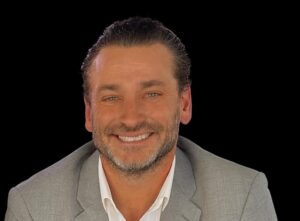Judy Hensley, RN, has become a guiding light for countless individuals coping with life after cancer treatment. Hensley is a registered nurse and facilitator for the cancer support group at the UCSF Health San Mateo Primary and Specialty Care Clinic. Hensley’s work reflects her decades-long commitment to nursing and cultivating connections with cancer survivors.
A Compassion-Driven Career
Hensley’s journey into nursing began with a motivation to help others. After earning an associate degree in nursing from North Hennepin Community College in Minnesota in 1980, she embarked on a career spanning over 40 years. The positions she held ranged from leading a medical oncology unit at the Veterans Administration Medical Center in San Francisco to providing home care as a visiting nurse.
Hensley has earned a reputation as a compassionate patient advocate. She worked in oncology care for more than 15 years with Dr. Brian Henderson in San Mateo, California. At that time, she began counseling cancer survivors, a practice she continues today as the facilitator of a twice-monthly support group. Hensley’s efforts have provided a safe space for individuals to share experiences, manage post-treatment anxieties, and rebuild their lives.
Life After a Cancer Diagnosis
There’s a critical gap in cancer care that Hensley’s support group addresses. While medical treatment often focuses on eradicating the disease, survivors face emotional and psychological hurdles that persist after the final round of chemotherapy. Many find themselves grappling with fear, uncertainty, and isolation that family and friends may struggle to understand.
Hensley recognized this need early in her career. “I wanted people to get back into the community and realize that they are in charge of what they want to share with others,” she says. Hensley facilitates this by creating a community where participants can express vulnerabilities without judgment. The veteran nurse emphasizes that surviving cancer is not about returning to a pre-diagnosis normal but about embracing a “new normal” with confidence.
An Advocate of Many Talents
There’s more to Hensley than meets the eye. She is an accomplished writer and has contributed articles to the American Journal of Nursing and advanced nursing textbooks. In 1991, she published the article “Continuous Subcutaneous Morphine Sulfate for Pain Control in the Terminal Stage of Cancer,” which highlights her clinical expertise. Her recent work includes a children’s book, “I Don’t Want to Say Goodbye,” addressing grief, and a forthcoming guide on end-of-life planning for adults.
Hensley also has an entrepreneurial spirit. For more than 10 years, she ran a successful gift basket business. In this venture, she shipped handcrafted creations worldwide. Other extracurricular activities include membership in the San Francisco Peninsula Writers Club.
Values Rooted in Experience
As the child of a single mother, Hensley attributes much of her success to her mom. This upbringing gave her a strong sense of empathy and determination that have defined her professional career. Listening and learning are also cornerstones of her advocacy. Whether leading a support group session or mentoring aspiring nurses, Hensley employs the above traits to deliver effective care.
Hensley advises nursing professionals to listen to instructors, patients, and the people around them. This conviction has guided her throughout her career. It has also enabled her to build genuine connections while addressing her patients’ physical and emotional needs.
A Career that Inspires Hope
Now semi-retired, Hensley continues facilitating cancer support groups while cherishing time with her grandchildren. Though she plans to step back from nursing in the coming years, her commitment to helping others remains steadfast. Whether through her writing, advocacy, or presence in the support group circle, Hensley has led a remarkable career.
In an industry where burnout is common, Hensley’s passion shows the difference one person can make. For the countless individuals she has touched, Hensley is more than a nurse — she’s a lifeline, a mentor, and a source of hope.








